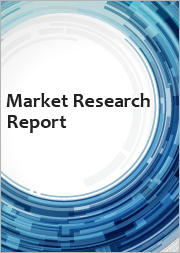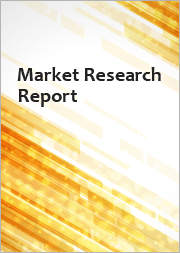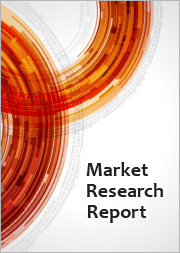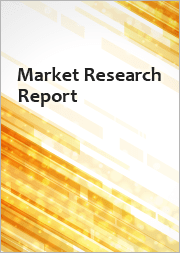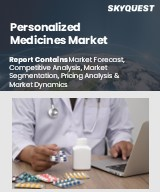
|
시장보고서
상품코드
1897351
맞춤형 의료 시장 규모, 점유율, 성장 분석 : 제품별, 기술별, 투여 경로별, 용도별, 최종사용자별, 지역별 - 업계 예측(2026-2033년)Personalized Medicines Market Size, Share, and Growth Analysis, By Product, By Technology, By Mode of Delivery, By Application, By End-user, By Region - Industry Forecast 2026-2033 |
||||||
세계의 맞춤형 의료 시장 규모는 2024년에 5,604억 9,000만 달러로 평가되며, 2025년 6,126억 2,000만 달러에서 2033년까지 1조 2,478억 1,000만 달러로 성장할 전망입니다. 예측 기간(2026-2033년)의 CAGR은 9.3%로 예측됩니다.
맞춤형 의료 시장은 유전자 기술을 통합하여 환자 개개인에게 최적의 치료법을 제공함으로써 괄목할 만한 성장을 달성하고 있습니다. 인간 유전체의 고유성으로 인해 질병의 발현은 개인마다 다르며, 특히 종양학 분야에서 개인별 맞춤 진단 및 치료에 대한 수요가 증가하고 있습니다. 그러나 빠르게 발전하는 유전자 기술의 발전으로 종양학 이외의 응용 분야에 대한 관심도 급증하고 있습니다. 이 분야에 대한 투자는 지속적으로 증가하고 있으며, 희귀질환 치료에서 맞춤형 의료의 가능성을 높이는 혁신을 촉진하고 있습니다. 알츠하이머병, 파킨슨병과 같은 질병에 대한 개별화 접근법 활용에 대한 연구가 강화되고 있습니다. 헬스케어 예산 증가와 제약기업과 정부기관의 협력 강화에 따라 맞춤형 의료에 대한 수요는 더욱 가속화될 것으로 예측됩니다.
세계 맞춤형 의료시장 활성화 요인
세계 맞춤형 의료 시장은 헬스케어 및 제약 산업에 혁명을 가져올 유전자 기술의 급속한 발전에 의해 크게 견인되고 있습니다. 현재 50억 달러가 넘는 유전자 기술 평가액의 상승은 탄탄한 수요를 보여주며 매년 많은 투자를 유치하고 있습니다. 기술 발전이 계속되는 가운데 시장은 괄목할 만한 성장을 이룰 것으로 예상되며, CAGR이 20%를 넘어설 것으로 예측됩니다. 유전자 기술의 급격한 성장은 맞춤형 의료에 대한 접근성과 수요를 증가시키고, 전 세계 환자들을 위한 맞춤형 의료 솔루션의 광범위한 채택과 실행을 촉진할 것입니다.
세계 맞춤형 의료 시장의 제약 요인
세계에서 헬스케어 인프라는 발전하고 있지만, 관련 비용 또한 지속적으로 상승하고 있으며, 그 재정적 부담이 소비자에게 전가되는 경우가 적지 않습니다. 많은 지역에서 의료비 상승률이 물가상승률을 상회하고 있으며, 이는 고가의 맞춤형 의료에 대한 수요 감소로 이어지고 있습니다. 이러한 추세는 높은 가격으로 인해 개인들이 이러한 혁신적인 치료법에 대한 투자를 주저할 수 있으므로 세계 맞춤형 의료 시장에 심각한 도전이 되고 있습니다. 결과적으로 환자가 직면한 경제적 제약은 시장 성장을 저해하고 생명을 구할 수 있는 개인 맞춤형 치료에 대한 접근성을 제한하는 요인으로 작용하여 이 분야의 큰 제약 요인으로 작용하고 있습니다.
세계 맞춤형 의료 시장 동향
세계 맞춤형 의료 시장은 특히 신흥 국가의 건강보험 적용 범위 확대에 힘입어 눈에 띄는 변화를 경험하고 있습니다. 이러한 진화를 통해 개인 맞춤형 치료에 대한 접근성과 경제성이 향상되고 있습니다. 왜냐하면, 더 많은 보험 프로바이더들이 이러한 첨단 치료법을 보험에 포함시키고 있기 때문입니다. 보험 혜택이 확대됨에 따라 더 많은 환자들이 자신의 고유한 유전자 프로파일에 기반한 맞춤형 헬스케어 솔루션을 제공받을 수 있게 되어 치료 성과와 만족도를 높일 수 있게 되었습니다. 맞춤형 의료에 대한 소비자의 인식과 수요가 증가함에 따라 보험과 헬스케어의 융합이 시장을 주도하고 개인 맞춤형 치료가 더욱 보편화될 것으로 예측됩니다.
자주 묻는 질문
목차
서론
- 조사의 목적
- 조사 범위
- 정의
조사 방법
- 정보 조달
- 2차와 1차 데이터 방법
- 시장 규모 예측
- 시장의 전제조건과 제한
개요
- 세계 시장 전망
- 공급과 수요 동향 분석
- 부문별 기회 분석
시장 역학과 전망
- 시장 규모
- 시장 역학
- 촉진요인과 기회
- 억제요인과 과제
- Porter의 산업 분석
주요 시장 인사이트
- 주요 성공 요인
- 시장에 영향을 미치는 요인
- 주요 투자 기회
- 에코시스템 지도제작
- 시장의 매력 지수(2025년)
- PESTEL 분석
- 기술 분석
- 사례 연구
- 특허 분석
- 밸류체인 분석
- 임상시험
- 무역 분석
- 원재료 분석
- 스타트업 분석
- 규제 분석
세계의 맞춤형 의료 시장 규모 : 제품별 & CAGR(2026-2033)
- 진단
- 유전자 검사
- DTC 진단
- 특수 검사 서비스
- 특수 검사
- 기타
- 치료제
- 의약품
- 게놈 의료
- 의료기기
- 기타
- 맞춤형 의료
- 원격의료
- 헬스 정보기술
- 기타
- 맞춤형 영양·웰니스
- 소매 영양
- 보완대체의학
- 기타
세계의 맞춤형 의료 시장 규모 : 기술별 & CAGR(2026-2033)
- 빅데이터 분석
- 인공지능
- 바이오인포매틱스
- 유전자 시퀀싱
- Drug Discovery
- 동반진단
- 유전학
- 액체생검
- 기타
세계의 맞춤형 의료 시장 규모 : 투여 방법별 & CAGR(2026-2033)
- 원내 맞춤형 치료
- 재택 검사·치료
- 원격의료 플랫폼
- POC(Point-Of-Care) 진단
- 기타
세계의 맞춤형 의료 시장 규모 : 용도별 & CAGR(2026-2033)
- 종양학
- 중추신경계(CNS)
- 면역학
- 호흡기
- 간
- 류머티즘학
- 기타
세계의 맞춤형 의료 시장 규모 : 최종사용자별 & CAGR(2026-2033)
- 병원
- 진단 센터
- 연구기관·학술기관
- 기타
세계의 맞춤형 의료 시장 규모 & CAGR(2026-2033)
- 북미
- 미국
- 캐나다
- 유럽
- 독일
- 스페인
- 프랑스
- 영국
- 이탈리아
- 기타 유럽 지역
- 아시아태평양
- 중국
- 인도
- 일본
- 한국
- 기타 아시아태평양
- 라틴아메리카
- 브라질
- 기타 라틴아메리카 지역
- 중동 및 아프리카
- GCC 국가
- 남아프리카공화국
- 기타 중동 및 아프리카
경쟁 정보
- 상위 5사의 비교
- 주요 기업의 시장 포지셔닝(2025년)
- 주요 시장 기업이 채택한 전략
- 최근 시장 동향
- 기업의 시장 점유율 분석(2025년)
- 주요 기업의 기업 개요
- 기업의 상세
- 제품 포트폴리오 분석
- 기업의 부문별 점유율 분석
- 매출의 전년대비 비교(2023-2025년)
주요 기업 개요
- Illumina Inc.
- GE Healthcare
- Asuragen Inc.
- Abbott Laboratories
- Biogen Inc.
- Qiagen
- Thermo Fisher Scientific
- Novartis AG
- Pfizer Inc.
- Roche
- Foundation Medicine
- Cepheid
- Dako A/S
- NanoString Technologies
- Biocrates Life Sciences
- Precision Biologics
- Danaher Corporation
- Moderna
- Vertex Pharmaceuticals
- BioNTech
결론과 제안
KSA 26.01.09Global Personalized Medicines Market size was valued at USD 560.49 Billion in 2024 and is poised to grow from USD 612.62 Billion in 2025 to USD 1247.81 Billion by 2033, growing at a CAGR of 9.3% during the forecast period (2026-2033).
The personalized medicine market is experiencing significant growth as it integrates genetic technology to deliver tailored treatments for individual patients. Given the uniqueness of human genomes, diseases manifest differently across individuals, prompting a rising demand for personalized diagnostics and therapies, particularly in oncology. However, interest in non-oncology applications is also surging due to advancements in genetic technology, which is expanding rapidly. Investment in this sector continues to rise, fostering innovations that enhance personalized medicine's potential for treating rare diseases. Research efforts are intensifying around leveraging personalized approaches for conditions like Alzheimer's and Parkinson's disease. With increasing healthcare budgets and strengthened partnerships between pharmaceutical firms and government entities, the demand for personalized medicine is anticipated to accelerate further.
Top-down and bottom-up approaches were used to estimate and validate the size of the Global Personalized Medicines market and to estimate the size of various other dependent submarkets. The research methodology used to estimate the market size includes the following details: The key players in the market were identified through secondary research, and their market shares in the respective regions were determined through primary and secondary research. This entire procedure includes the study of the annual and financial reports of the top market players and extensive interviews for key insights from industry leaders such as CEOs, VPs, directors, and marketing executives. All percentage shares split, and breakdowns were determined using secondary sources and verified through Primary sources. All possible parameters that affect the markets covered in this research study have been accounted for, viewed in extensive detail, verified through primary research, and analyzed to get the final quantitative and qualitative data.
Global Personalized Medicines Market Segments Analysis
Global Personalized Medicines Market is segmented by Product, Technology, Mode of Delivery, Application, End-user and region. Based on Product, the market is segmented into Diagnostics, Therapeutics, Personalized Medical Care and Personalized Nutrition and Wellness. Based on Technology, the market is segmented into Big Data Analytics, Artificial Intelligence, Bioinformatics, Gene Sequencing, Drug Discovery, Companion Diagnostics, Genetics, Liquid Biopsy and Others. Based on Mode of Delivery, the market is segmented into In-Hospital Personalized Treatment, Home-Based Testing & Treatment, Telemedicine Platforms, Point-of-Care Diagnostics and Others. Based on Application, the market is segmented into Oncology, CNS, Immunology, Respiratory, Liver, Rhematology and Others. Based on End-user, the market is segmented into Hospitals, Diagnostic Centers, Research & Academic Institutes and Others. Based on region, the market is segmented into North America, Europe, Asia Pacific, Latin America and Middle East & Africa.
Driver of the Global Personalized Medicines Market
The Global Personalized Medicines market is significantly driven by the rapid advancement of genetic technology, which is revolutionizing the healthcare and pharmaceutical industries. The increasing valuation of genetic technology, currently exceeding $5 billion, demonstrates robust demand and is attracting substantial investments annually. As the technology continues to progress, it is anticipated that the market will experience remarkable growth, with projections indicating a compound annual growth rate surpassing 20%. This surge in genetic technology will enhance the accessibility and demand for personalized medicines, fostering a wider adoption and implementation of tailored healthcare solutions for patients worldwide.
Restraints in the Global Personalized Medicines Market
Although healthcare infrastructure is advancing worldwide, the associated expenses are also escalating, often transferring the financial burden to consumers. The rising cost of healthcare outpaces inflation in many regions, leading to a decrease in demand for pricier personalized medicines. This trend poses a significant challenge to the Global Personalized Medicines market, as individuals may be reluctant to invest in these innovative treatments due to their elevated prices. Consequently, the financial constraints experienced by patients can hinder market growth and limit access to potentially life-saving personalized therapies, creating a significant restraint in the sector.
Market Trends of the Global Personalized Medicines Market
The Global Personalized Medicines market is experiencing a notable shift driven by the expansion of health insurance coverage, particularly in emerging economies. This evolution is facilitating greater accessibility and affordability of personalized therapies, as an increasing number of insurance providers are incorporating these advanced treatments into their policies. Enhanced insurance offerings are enabling more patients to receive tailored healthcare solutions based on their unique genetic profiles, leading to improved treatment outcomes and satisfaction. As consumer awareness and demand for personalized medicine rise, the convergence of insurance and healthcare is set to propel the market forward, making personalized treatments more mainstream.
Table of Contents
Introduction
- Objectives of the Study
- Scope of the Report
- Definitions
Research Methodology
- Information Procurement
- Secondary & Primary Data Methods
- Market Size Estimation
- Market Assumptions & Limitations
Executive Summary
- Global Market Outlook
- Supply & Demand Trend Analysis
- Segmental Opportunity Analysis
Market Dynamics & Outlook
- Market Overview
- Market Size
- Market Dynamics
- Drivers & Opportunities
- Restraints & Challenges
- Porters Analysis
- Competitive rivalry
- Threat of substitute
- Bargaining power of buyers
- Threat of new entrants
- Bargaining power of suppliers
Key Market Insights
- Key Success Factors
- Market Impacting Factors
- Top Investment Pockets
- Ecosystem Mapping
- Market Attractiveness Index, 2025
- PESTEL Analysis
- Technology Analysis
- Case Studies
- Patent Analysis
- Value Chain Analysis
- Clinical Trials
- Trade Analysis
- Raw Material Analysis
- Startup Analysis
- Regulatory Analysis
Global Personalized Medicines Market Size by Product & CAGR (2026-2033)
- Market Overview
- Diagnostics
- Genetic Testing
- DTC Diagnostics
- Esoteric Lab Services
- Esoteric Lab Tests
- Others
- Therapeutics
- Pharmaceutical
- Genomic Medicine
- Medical Devices
- Others
- Personalized Medical Care
- Telemedicine
- Health Information Technology
- Others
- Personalized Nutrition and Wellness
- Retail Nutrition
- Complementary & Alternative Medicine
- Others
Global Personalized Medicines Market Size by Technology & CAGR (2026-2033)
- Market Overview
- Big Data Analytics
- Artificial Intelligence
- Bioinformatics
- Gene Sequencing
- Drug Discovery
- Companion Diagnostics
- Genetics
- Liquid Biopsy
- Others
Global Personalized Medicines Market Size by Mode of Delivery & CAGR (2026-2033)
- Market Overview
- In-Hospital Personalized Treatment
- Home-Based Testing & Treatment
- Telemedicine Platforms
- Point-of-Care Diagnostics
- Others
Global Personalized Medicines Market Size by Application & CAGR (2026-2033)
- Market Overview
- Oncology
- CNS
- Immunology
- Respiratory
- Liver
- Rhematology
- Others
Global Personalized Medicines Market Size by End-user & CAGR (2026-2033)
- Market Overview
- Hospitals
- Diagnostic Centers
- Research & Academic Institutes
- Others
Global Personalized Medicines Market Size & CAGR (2026-2033)
- North America (Product, Technology, Mode of Delivery, Application, End-user)
- US
- Canada
- Europe (Product, Technology, Mode of Delivery, Application, End-user)
- Germany
- Spain
- France
- UK
- Italy
- Rest of Europe
- Asia Pacific (Product, Technology, Mode of Delivery, Application, End-user)
- China
- India
- Japan
- South Korea
- Rest of Asia-Pacific
- Latin America (Product, Technology, Mode of Delivery, Application, End-user)
- Brazil
- Rest of Latin America
- Middle East & Africa (Product, Technology, Mode of Delivery, Application, End-user)
- GCC Countries
- South Africa
- Rest of Middle East & Africa
Competitive Intelligence
- Top 5 Player Comparison
- Market Positioning of Key Players, 2025
- Strategies Adopted by Key Market Players
- Recent Developments in the Market
- Company Market Share Analysis, 2025
- Company Profiles of All Key Players
- Company Details
- Product Portfolio Analysis
- Company's Segmental Share Analysis
- Revenue Y-O-Y Comparison (2023-2025)
Key Company Profiles
- Illumina Inc.
- Company Overview
- Business Segment Overview
- Financial Updates
- Key Developments
- GE Healthcare
- Company Overview
- Business Segment Overview
- Financial Updates
- Key Developments
- Asuragen Inc.
- Company Overview
- Business Segment Overview
- Financial Updates
- Key Developments
- Abbott Laboratories
- Company Overview
- Business Segment Overview
- Financial Updates
- Key Developments
- Biogen Inc.
- Company Overview
- Business Segment Overview
- Financial Updates
- Key Developments
- Qiagen
- Company Overview
- Business Segment Overview
- Financial Updates
- Key Developments
- Thermo Fisher Scientific
- Company Overview
- Business Segment Overview
- Financial Updates
- Key Developments
- Novartis AG
- Company Overview
- Business Segment Overview
- Financial Updates
- Key Developments
- Pfizer Inc.
- Company Overview
- Business Segment Overview
- Financial Updates
- Key Developments
- Roche
- Company Overview
- Business Segment Overview
- Financial Updates
- Key Developments
- Foundation Medicine
- Company Overview
- Business Segment Overview
- Financial Updates
- Key Developments
- Cepheid
- Company Overview
- Business Segment Overview
- Financial Updates
- Key Developments
- Dako A/S
- Company Overview
- Business Segment Overview
- Financial Updates
- Key Developments
- NanoString Technologies
- Company Overview
- Business Segment Overview
- Financial Updates
- Key Developments
- Biocrates Life Sciences
- Company Overview
- Business Segment Overview
- Financial Updates
- Key Developments
- Precision Biologics
- Company Overview
- Business Segment Overview
- Financial Updates
- Key Developments
- Danaher Corporation
- Company Overview
- Business Segment Overview
- Financial Updates
- Key Developments
- Moderna
- Company Overview
- Business Segment Overview
- Financial Updates
- Key Developments
- Vertex Pharmaceuticals
- Company Overview
- Business Segment Overview
- Financial Updates
- Key Developments
- BioNTech
- Company Overview
- Business Segment Overview
- Financial Updates
- Key Developments






